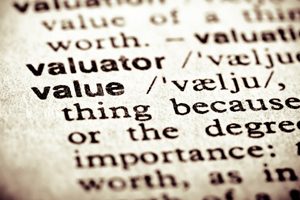Conservative organizations hijack English words and use them as ammunition against the LGBT community, but the true definitions may surprise you.
Family, tradition, and values. When I hear these three words, I question whether any of them apply to my life. These loaded words have become so synonymous with conservative rhetoric that I associate them with anti-gay ammunition, and because of this, I move out of the way when I see them coming. But the other day, while researching an article on Maine’s gay marriage initiative, I came across a Family Equality Council. I assumed, based on groups like the Family Research Council, Focus on the Family, and the Florida Family Association, that this group was an anti-gay marriage organization. But I was wrong. The Family Equality Council supports the equality of all families, hence the simple name. I had been so wrapped up in the right’s pro-“family” language that I lost the true definition of “family.” (Ironically, the gay meaning of the word “family” also slipped my mind). I decided to look up the words “family,” “tradition,” and “values,” and the dictionary definitions I found were surprising. For these three words, the definitions were much closer to my own life, and they support the rights the LGBT community deserves.
First, family.
Merriam-Webster defines “family” (sorry for the cliche toast intro) as a two-adult household that rears children. There is no mention of gender or sexual orientation. In fact, MW provides a second definition for “family” in an effort to account for single parent households: “various social units differing from but regarded as equivalent to the traditional family.” In other words, any group of people may be defined as a family, with or without children, and with or without specific gender requirements. Therefore, my partner and I are a family, and, as such, should be protected by groups like “Focus on the Family.” But instead, groups like this (and scores of others with “family” in the name) protect the rights of the family as they define it, which includes a woman, a man, and their children.
In Merriam-Webster’s definition of the word “family,” the phrase “equivalent to traditional family” is used to provide a “non-traditional” alternative. But what does the word “tradition” really mean? MW provides four definitions of “tradition,” including the following, which is mentioned first: “a body of beliefs or stories relating to the past that are commonly accepted as historical though not verifiable” (italics mine). Therefore, the phrase “traditional family” is a circular definition. A family can be a two-adult household (traditional) or various social units (non-traditional), but the very idea of “tradition” is unverifiable, which cancels out the two. In other words, tradition, like the definition of family, is malleable.
The plural word “values” is the most interesting of the three hijacked words.
“Values,” as we know them in a conservative sense (American patriotism, nuclear family, religious affiliation, etc.), do not exist in MW’s dictionary. “Value” (and the plural “values”) is defined in seven ways, none of which include reference to tradition, religion, morals, or family. The closest MW gets to the religious and conservative meaning is the fourth definition: “Value: relative worth, utility, or importance.”
If you add “traditional” to this word, it might look something like this: “Traditional value: a relative worth, utility or importance that is commonly accepted as historical though not verifiable.” In other words, values are ideas that people believe are important (i.e., America being the best nation in the world, children needing a mother and father, religious doctrine being paramount, etc.), but not, importantly, in a verifiable way.
It appears that “family,” “tradition,” and “values,” at least as Merriam-Webster defines them, have more to do with inclusion than restriction. In this light, and when applied to the LGBT community, “traditional family values” takes on an entirely different meaning. We’ve always been a family, and our traditions and values are, just like everyone else’s, meaningful to us and relevant to society. But, with exceptions like the Family Equality Council, these words are rarely used to describe the rights of the LGBT community. Isn’t it time that changed?
